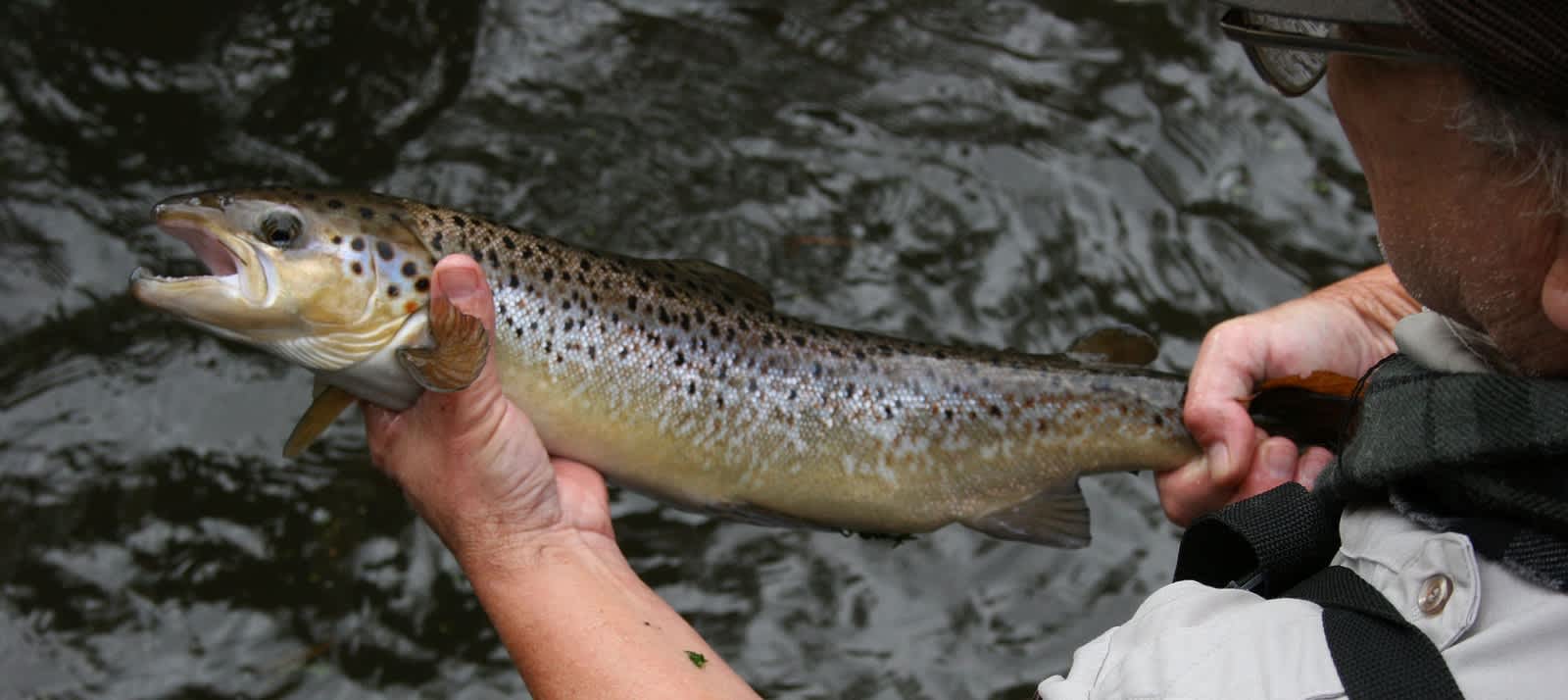Researchers Reportedly Find Traces of Deadly Virus in Wild BC Salmon
OutdoorHub Reporters 01.13.16

Infectious salmon anemia virus (ISA) is one of the most dreaded viruses capable of infecting the species, capable of wiping out fish populations and causing billions of dollars in damages. A recent study published in the journal Virology hints that a variant of the virus, which previously devastated salmon farms in Chile, has been detected in wild fish populations in British Columbia.
“We never found the whole virus, we just found pieces of it, but the pieces of the virus can’t exist by themselves, so it’s concerning, because this is a member of the influenza family,” Alexandra Morton, a co-author on the study, told On the Coast.
The researchers said that samples from over 1,000 wild and farmed fish of varying species have revealed genetic matches for the European variant of ISA. It is not the first time that the virus was believed to be found in British Columbia. In 2011, two wild Pacific salmon from the central coast showed possible signs of the virus, but a closer look by the Canadian Food Inspection Agency was unable to find evidence of the pathogen in the fish. A year later, a confirmed ISA outbreak in Nova Scotia led to the destruction of 750,000 salmon.
The virus itself poses no risk to human health, but it is particularly problematic for of fish. An outbreak of the virus in Chile in 2007 led to a large-scale decline in the country’s fish farming industry, with many facilities closing due to massive fish die-offs from the virus. While some worry the same might happen in British Columbia, there is also concern for the province’s vulnerable wild salmon stock.
“For years, we have warned the federal and provincial governments about our concerns with the imminent and devastating effect salmon farms have on wild salmon stocks. Today these fears are heightened,” said Chief Bob Chamberlin, Vice-President of the Union of BC Indian Chiefs, in a press release. “Wild salmon are integral to many First Nations’ cultures, well being and livelihood, and the protection of our wild salmon stocks is equally integral to the economic and environmental sustainability of the province and country as a whole.”
However, the study is coming under scrutiny by both salmon farmers and other researchers. When it comes to ISA research, Alexandra Morton is something of a controversial figure.
Jeremy Dunn, Executive Director of the BC Salmon Farmers Association, said in a press release that Morton has been reporting positive signs of the virus for the last four years, but her methods do not follow appropriate standards, nor have they been confirmed by the Canadian Food Inspection agency.
“We have great concerns about the methodology, and the ethics of the researchers involved, given their history of reporting false positives with respect to ISA,” Dunn said. “None of the results reported in this paper have been confirmed by an outside laboratory.”
Dr. Gary Marty, a senior fish pathologist with the Ministry of Agriculture, also wrote that the unconfirmed tests results were not likely to present a threat to wild or farmed salmon.
“My confidence is based on results from extensive monitoring over the past decade for ISA and other diseases in B.C. farm salmon,” Marty wrote. “This study is led by government and farm veterinary scientists, and it is consistent with type of further study recommended in the paper. The unconfirmed PCR test results reported by Kibenge et al. (2016) will not change our approach to rigorous science based sampling and testing hundreds of farm salmon every year for diseases, including ISA.”

